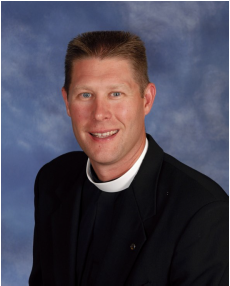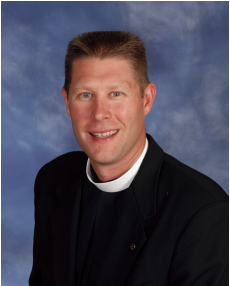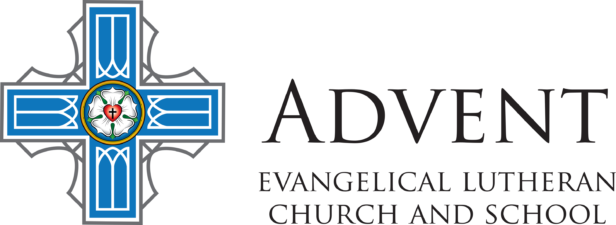What is worship?
 The next few newsletter articles will tackle the subject of “worship.” For now, let’s start with what was heard at a popular local Christian church not very far away . . .
The next few newsletter articles will tackle the subject of “worship.” For now, let’s start with what was heard at a popular local Christian church not very far away . . .
“when you go to a Justin Timberlake concert…you are worshipping: showing love, admiration, affection…Lucas Oil stadium…same thing…the question isn’t whether but what you will worship?”
“your church experience will only be as good as what you bring to it”
“you were made to worship…you were made to love and show admiration and affection”
“God is worthy of the WOW that is already in your heart”
“aim the WOW in your heart toward the one that is only worthy of it”
“you are already worshipping so direct it to Him”
“aim your worship…to God”
“life is hard and challenging….worship your way through it”
The underlying premise of this “sermon” is that true worship is standing, dancing, clapping, praising, exactly how you see done at a concert or football game. The pastor even went so far as to say that God commands such worship and that humans beings are created to do just that.
Let’s start with John 6:28-29, Then they asked him, “What must we do to do the works God requires?” Jesus answered, “The work of God is this: to believe in the one he has sent.”
The highest form of worship is FAITH. Not what you do or how you do it, but belief in Jesus Christ, the Son of God, crucified and risen for your sins and the sins of the whole world.
The local pastor went on to claim that “you were made to worship” and that you are doing just that at a Colts game or Justin Timberlake concert. Since this is worship, you merely need to “aim your worship at God.” This is also false on many levels:
- Man is spiritually dead in his trespasses and sin. He is not made to worship, he is so infected by sin that even Jesus says in John 8:44 You are of your father the devil, and your will is to do your father’s desires.There are many passages that speak to our inability to worship God or that we can control or aim anything. Here is another from 1 Corinthians 2:14 The natural person does not accept the things of the Spirit of God, for they are folly to him, and he is not able to understand them because they are spiritually discerned.
- Many Christians assume that the word “worship” is the same as the word “praise.” This is why many churches, even Lutheran, have a “Praise Service” or a “Praise Team”. The first word for worship that occurs in Genesis actually means “bow down.” This is quite different from the definition of worship I shared above. Bowing down is quiet and reverent and submissive. I suggest we start a “Bowing Service” and a “Bowing Team”!
Just joking.
- God commands that we only worship Him, so if what we do at a Colts game or Timberlake concert is the same thing, then following the logic from this popular local Christian church, it would be sinful according to Scripture! Consider these passages where God commands worship of Him only: Luke 4:8 And Jesus answered him, “It is written, “‘You shall worship the Lord your God, and him only shall you serve.’” Deuteronomy 6:13 It is the Lord your God you shall fear. Him you shall serve and by his name you shall swear.
So we see that the definition of “worship” from this big box church is incorrect, from Scripture. Furthermore, how do you deal with sin in your life? This church falsely tells you to “worship your way through it”. This puts ALL the work on you!
Our Divine Services as Lutheran-Christians focus on two things: humbling ourselves before the almighty God with reverence and awe, but an awe that bows down before Him, which is so different from the way the world worships. We don’t worship God like we do the Colts or Timberlake, because we have nothing to offer Him. We are sinners. Thus, the Divine Service is not about us coming to God, but rather God coming to us. Forgiving us. Which reminds me, Jesus commands (mandates) the Apostles’ and the church that follows them John 20:19-23, On the evening of that day, the first day of the week, the doors being locked where the disciples were for fear of the Jews, Jesus came and stood among them and said to them, “Peace be with you.” When he had said this, he showed them his hands and his side. Then the disciples were glad when they saw the Lord. Jesus said to them again, “Peace be with you. As the Father has sent me, even so I am sending you.” And when he had said this, he breathed on them and said to them, “Receive the Holy Spirit. If you forgive the sins of any, they are forgiven them; if you withhold forgiveness from any, it is withheld.”
I watched the entire service of this local church. Never once did I hear the pastors speak these life-giving words of Jesus: I FORGIVE YOU. Why don’t they do that? Jesus commands it.
Luke 24:46-47 Jesus said to them, “Thus it is written, that the Christ should suffer and on the third day rise from the dead, and that repentance for the forgiveness of sins should be proclaimed in his name to all nations, beginning from Jerusalem.
Forgiveness of sins was mentioned once or twice, but it was not the main thing in the “sermon”. They never mentioned the Gospel in terms of what Jesus did by living a perfect life, dying a death as the once for all sacrifice upon the cross, and rising to new life in His resurrection. This church is trying to get you and others to believe a false gospel, that you can and should worship God in a certain way. This is all Law. I am saddened to hear such drivel and fear for those who may be led astray.
And if we are going to talk about what God commands, what about Jesus also commanding the Lord’s Supper? We do it every Sunday. And not just because He commands (mandates) it, but because we also need it and desire what He forgives: forgiveness of sins, life and salvation. I did not see nor hear this emphasis at this local church. Luke 22:19-20 And he took bread, and when he had given thanks, he broke it and gave it to them, saying, “This is my body, which is given for you. Do this in remembrance of me.” And likewise the cup after they had eaten, saying, “This cup that is poured out for you is the new covenant in my blood.
Lastly, disciples are NOT made by teaching them to worship or aiming their worship at the right person or place. Hear again the words of Jesus, Matthew 28:18-20, And Jesus came and said to them, “All authority in heaven and on earth has been given to me. Go therefore and make disciples of all nations, baptizing them in the name of the Father and of the Son and of the Holy Spirit, teaching them to observe all that I have commanded you. And behold, I am with you always, to the end of the age.”
Disciples are made first by baptizing, not worshipping. Which is one of the reasons we baptize our infants. They, as sinners, receive God’s grace and mercy. They do nothing, He does everything. Then we teach. We catechize. I did not hear this emphasis from Scripture, at this local and popular “Christian” church. They are preaching a false gospel and twisting God’s word to appeal to you and others, leading them away from the gifts of Christ.
The crux of this first newsletter article on worship is this: we have nothing to offer Him, but He gives everything to us through Jesus Christ, through His Word, through His Sacraments. It is not sinful to celebrate at a Colts game or Timberlake concert. True worship is faith and quiet submission, which should bring to mind the story of Mary and Martha. Martha is busy working and doing things for Jesus. Mary is sitting quietly, at Jesus’ feet, listening, learning and receiving. Jesus commends Mary’s faith and actions, not Martha’s. Let us first receive His gifts of Word and Sacrament and then get busy with all that needs to be done this side of heaven. How we worship, what we say and do, does matter. More to come in the next newsletter article.
Forgiveness of sins, life and salvation are freely yours through Jesus Christ your Savior!
Peace be with you,
Pr. Mackay
Encouragement for the Scared Father
Pray the Catechism

Summer is quickly coming to a close and most of us are looking ahead to a Fall schedule filled with school, sports and weekly activities at church, such as choir and catechism classes.
Peace be with you,
Pr. Mackay
Presentation of the Augsburg Confession
Therefore, since we are surrounded by so great a cloud of witnesses, let us also lay aside every weight, and sin which clings so closely, and let us run with endurance the race that is set before us. Hebrews 12:1
On June 25th, the Church commemorates the “Presentation of the Augsburg Confession.” The Church Year is divided weekly into the following categories: Sundays & Seasons, Feasts & Festivals & Commemorations. A helpful explanation of these observances can be found on pp. x-xiii in the front of our hymnal, the Lutheran Service Book. It is good, right and salutary for us to remember those who have come before us and follow their path of faith and good works. As our congregation and Pastors subscribe to the Unaltered (original) Augsburg Confession, it is also helpful to review the foundational nature of this historic document (and why it is part of our confession of the faith and included as a Commemoration in our Church Year). Lastly, it is imperative in our culture today to recognize and model those who stood their ground in the midst of a world that so quickly deserted God and His Word. Reprinted below is an excellent article by Dr. Kilcrease. May we find our voice and stand firm in the same faith.
Enjoy!
Pr. Mackay
The Presentation of the Augsburg Confession
by Dr. Jack Kilcrease
Throughout the 1520’s, the Holy Roman Emperor Charles V was deeply frustrated by the rise of the Lutheran Reformation. Although he wished to put an end to the various Protestant movements that had grown up in the empire, he nevertheless found it very difficult to do so in light of a variety of wars he was engaged in with the Ottoman Turks and the League of Cognac. For this reason, Charles was effectively forced to allow the Reformation to spread largely unchecked throughout the 1520’s.
Nevertheless, by 1530, Charles had either defeated or made temporary peace with his enemies. Hence, he was finally able to turn his full attention to the religious issue that had plagued Germany since the Diet of Worms in 1521. Therefore, in January of 1530, the Emperor called an imperial Diet to meet in the German city of Augsburg in April of that year to decide the religious question.
As part of this imperial meeting, the Lutheran princes were asked to present their religious teachings. Wishing to present a unified front at the Diet, Luther, Melanchthon, and several other Wittenberg reformers met at Torgau in March of 1530 and drafted a confessional document which came to be known as the “Torgau Articles.” Since Luther was still officially an outlaw under imperial law, he could not travel on to Augsburg to present these articles before the Emperor and the imperial Diet. Instead, a delegation led by Philipp Melanchthon traveled to Augsburg to present the confession of faith before the Emperor, while Luther remained at Coburg Castle. Once there, Melanchthon revised the articles drafted earlier at Torgau under the advice of a number of theologians and political leaders. The final draft was complete on June 23rd and came to be known as the “Augsburg Confession.” Luther was sent drafts of the revised document as it was composed and approved the revisions and the final draft as well. Although the petition of the Lutheran princes to have the document publicly read was initially refused, the Emperor finally agreed. As a result, Melanchthon read the confession in the presence of the Emperor on June 25, 1530.
The Augsburg Confession is comprised of twenty-eight articles. Of these articles, twenty-one represent a positive presentation of the Christian faith as taught in the Lutheran Churches while the last seven articles cover suggested reforms of certain practices of the medieval Church. Although the ultimate aim of the Augsburg Confession was to summarize the main teachings of the Bible, Melanchthon also wished to emphasize the “catholic” (that is, meaning “universal,” not “Roman Catholic”) nature of Lutheran teaching. Throughout the confession, Melanchthon quotes or makes reference to the theologians and councils of the ancient Church to demonstrate the Lutheran Church’s continuity with early Christian teaching.
Showing the catholicity of Lutheran belief was important, because many Roman Catholic theologians had claimed that the Lutherans had broken with the traditional theology of the Church going all the way back to Christ and the apostles. Contrary to this charge, the Lutherans sought to show that their faith was not only drawn from Scripture, but had been the basic teachings of the Christian Church throughout the ages. It was only later that the medieval Church had corrupted the true faith through unbiblical and uncatholic innovations. This argument also carries over into the last seven articles that deal with reforms. With a few exceptions, most of the reforms proposed by Melanchthon involved rolling back changes that had been made to Church teaching and practice in the eleventh century by Pope Gregory the VII and his followers during a period often called the “Gregorian Revolution” by Church historians.
Although it is highly unlikely that modern Christians will ever be called upon to give an account of their faith in quite the same manner as the Wittenberg reformers did at Augsburg, the presentation of the Augsburg Confession may still serve as an important model to the Christian life of faith. Paul teaches us: “If you confess with your mouth that Jesus is Lord and believe in your heart that God raised him from the dead, you will be saved” (Rom. 10:9). For this reason (although Christians do not earn their salvation by confessing Christ publicly), faith necessarily gives rise to a public confession of faith through words and actions. If we believe in Jesus and the salvation he offers, we will confess that faith publicly, knowing that whatever the negative social, political, or personal consequences, the forces of this world do not have the power to control our ultimate fate. Christ has already overcome the world (Jn. 16:33) and we need not fear confessing the faith boldly.
https://lutheranreformation.org/history/presentation-augsburg-confession/
A Worm and No Book?
 Some 500 years ago, Martin Luther pointedly identified how the world viewed Holy Scripture, “just as it is with Christ in the world, as He is viewed and dealt with, so it is also with the written Word of God. It is a worm and no book, compared to other books” (Luther on Ps. 22, WA 48, 31).
Some 500 years ago, Martin Luther pointedly identified how the world viewed Holy Scripture, “just as it is with Christ in the world, as He is viewed and dealt with, so it is also with the written Word of God. It is a worm and no book, compared to other books” (Luther on Ps. 22, WA 48, 31).
Dear brothers and sisters in Christ, the world has not changed its view of Holy Scripture! And how many other “books” have surfaced and become popularized since then! The Koran, Book of Mormon, Evolutionary Science Textbooks, Legislation legalizing the murder of unborn babies in the womb, Legislation legalizing same-sex marriage, Transgender & Homosexuality issues . . . need I go on?
And how easy it is for the Christian to ignore and turn a blind eye to what is around us! The devil is crafty and sneaky, always attempting to slowly chip away at the foundation of our very faith and being. And when we allow ourselves to be swayed and convinced by the world, the devil and our own sinful nature, the Bible becomes to us “a worm and no book.” May it not be so among us.
Christ Himself was mocked and ridiculed (Matt. 27:28ff; John 6:42). Bearing the punishment for the world’s ignorance and disrespect of God’s Word, our Lord willingly offered Himself up, shedding His blood to cover your sin and mine. In His resurrection, we have the assurance that His sacrifice has been accepted . . . for us! Christ is Risen! Alleluia! Amen!
Emboldened by the Holy Spirit, we seek to be “genuine” while recognizing that the world “yet regards us as impostors” (2 Cor. 6:8). We pay heed to our Lord who said, “whoever is ashamed of me and of my words in this adulterous and sinful generation, of him will the Son of man also be ashamed, when He comes in the glory of His Father with the holy angels” (Mark 8:38).
The teaching and preaching of Holy Scripture will continue to be the central labor of Advent Evangelical Lutheran Church. Together we hear and learn the precious truth: in Sunday School and Bible Classes, in our Preschool, in the Divine Services. Together we receive forgiveness for our timidity and sins against His Holy and precious Word. So let us teach such truths to our children and our children’s children! Let us labor diligently in the fields set before us here in Zionsville and beyond. Let us gather together around the Lamb, singing His praise and strengthening ourselves for the battle that yet rages around us. It is a joy to serve here among fellow saints who confess such truth and also wrestle with “what does this mean?” May the Lord bless us and keep us firm in the one true faith.
A worm and no book?
I think not, for “blessed is the one who is not offended by me” (Matt. 11:6).
Pr. Mackay





